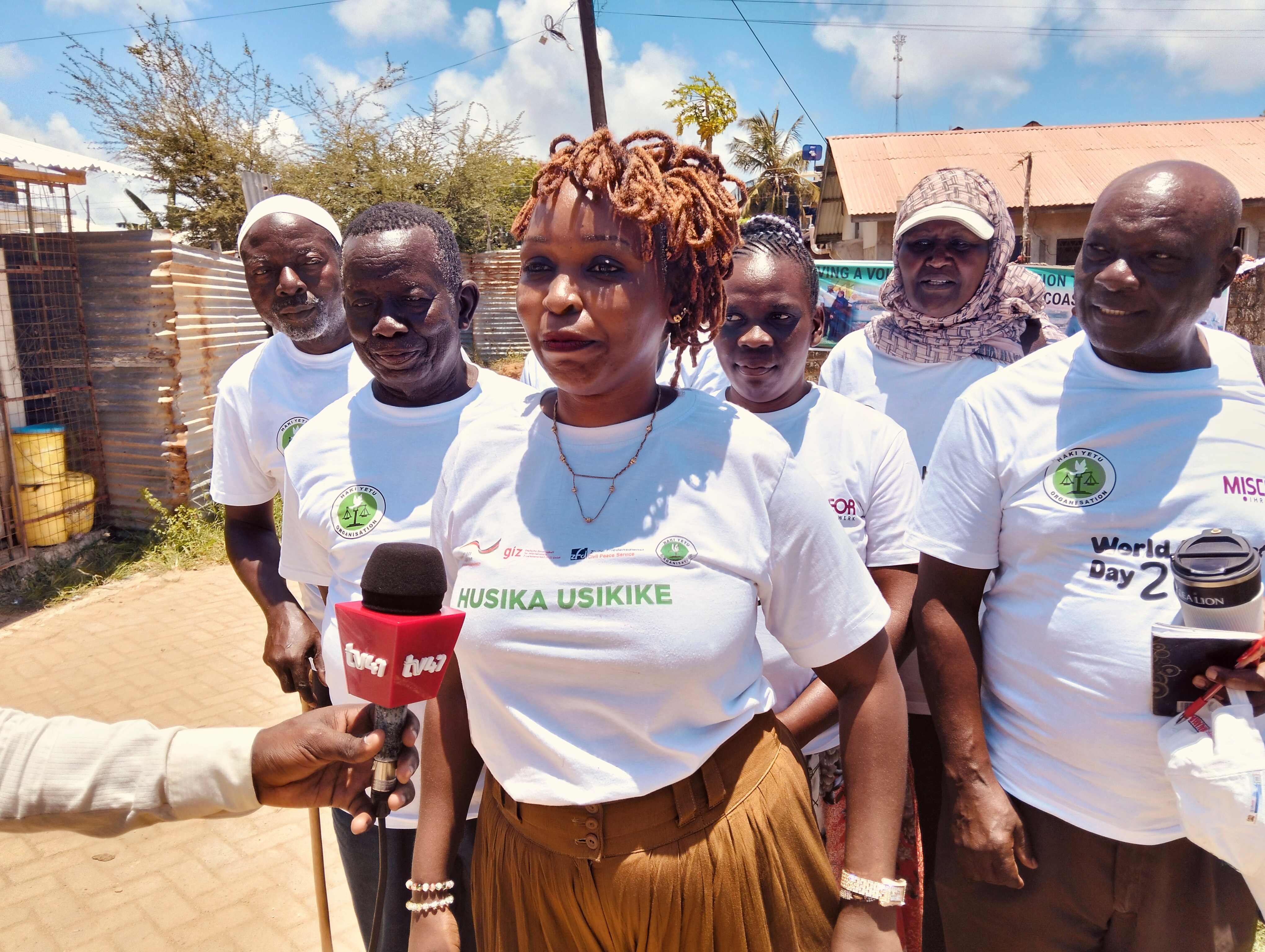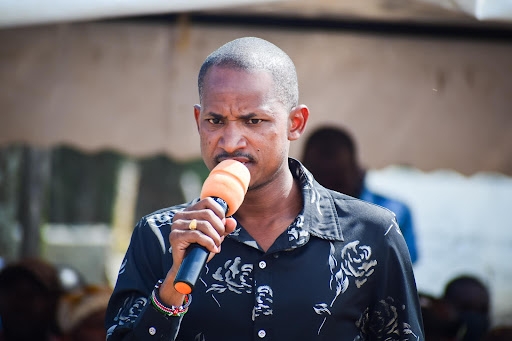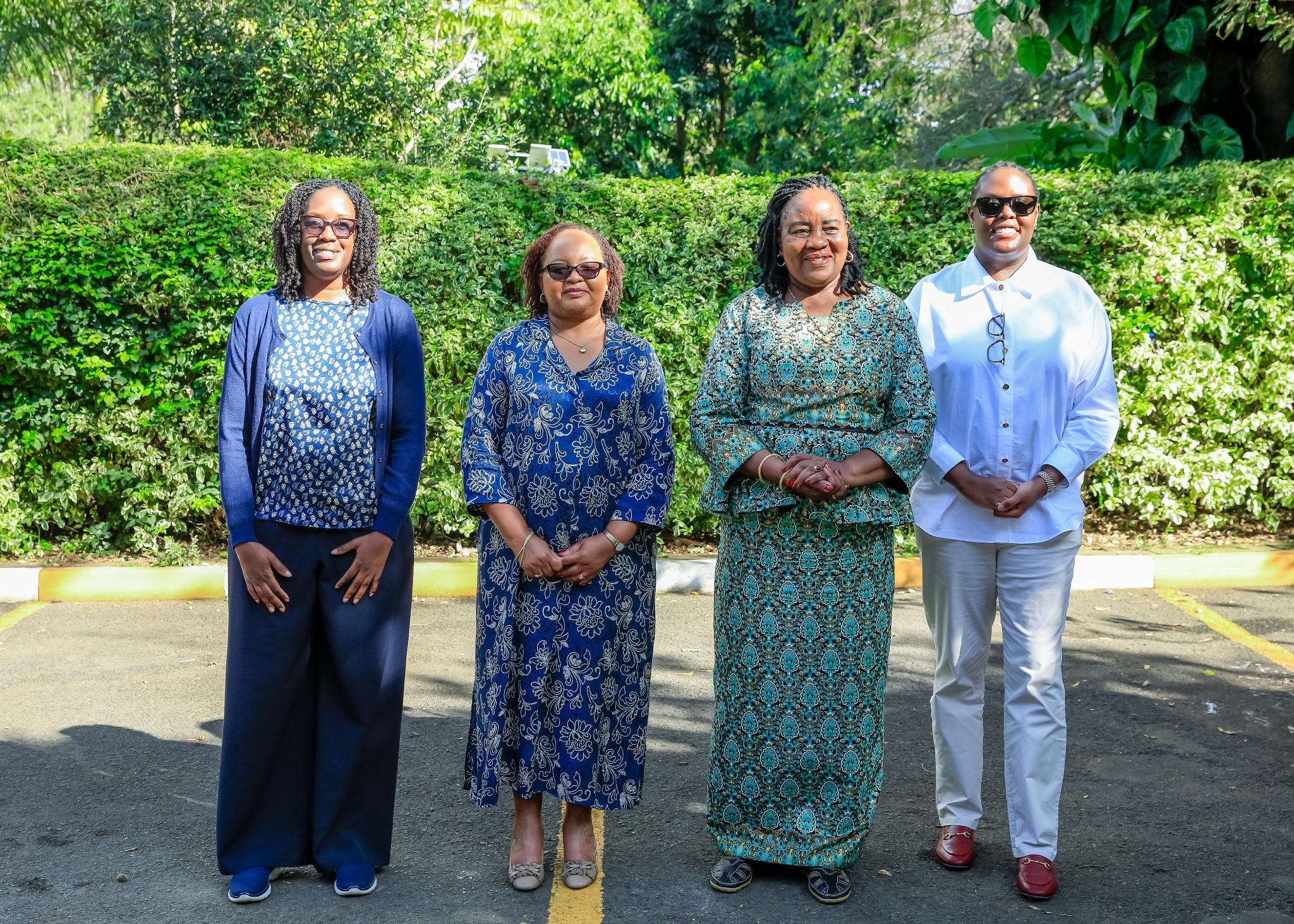
 Haki Yetu’s Triza Gacheru at Mbungoni in Kwa Bulo
on Thursday / BRIAN OTIENO
Haki Yetu’s Triza Gacheru at Mbungoni in Kwa Bulo
on Thursday / BRIAN OTIENOSH, a 16-year-old in Kwa Bulo of Kadzandani, Nyali constituency, was defiled and impregnated by a 19-year-old neighbour two years ago.
Her parents, wanting nothing to do with her after the pregnancy, married her off to the perpetrator.
After school, SH now goes to her husband instead of going back to her parents’ house in the evening.
During a legal aid clinic by Haki Yetu on Friday, officials said this was not uncommon.
“It is one of the many cases we have received in this area today. And to make matters worse, it is not the only case,” said the organisation’s Access to Justice officer Triza Gacheru.
“They prefer to settle cases at the community level instead, finding it an easy way out.”
In informal settlements, children’s rights are being violated by both the paedophiles and their parents, as poverty levels render legal services inaccessible.
“A child is defiled and instead of following the legal system, the victim’s parents seek an out-of-court settlement with the perpetrator, which in most cases ends with the parents being given money as a token of apology,” Gacheru said.
Lack of information on where to report and how to follow up cases is another challenge that residents in informal settlements face.
“That is why we are conducting this legal aid clinic. We want to disseminate information and sensitise such communities about their rights and the rights of their children,” Gacheru said.
Haki Yetu provides lawyers pro bono for such cases.
“Some of them are just too fearful of authorities because they have a negative perception about them. We have heard cases where the mother of a defilement victim says she cannot go to the police because they will demand a bribe to help her,” she said.
Fundi Musa, a Mbungoni Matopeni village elder, said they receive cases that are beyond their capacity to handle.
Sometimes, it is “lazy police officers” who advocate for out-of-court settlement so as not to have much work to do.
“Some of these police officers try to influence the decision of victims and their parents, especially where they see an opportunity to make a quick buck from perpetrators,” Musa said.
“They will ask the perpetrators for facilitation to talk to the victim’s family to drop the case or settle out of court.”
At times, victims get justice where some chiefs are involved, as these administrators are adamant that a case must end in court.
“However, the chiefs are most of the time overwhelmed with cases and they end up taking too long to be resolved,” Musa said.
Poverty levels contribute significantly to out-of-court settlements.
“The main thing here is lack of money. Parents of a victim of defilement would rather the perpetrator gives them Sh100,000, even if in instalments, than to pursue the matter in court which will have financial implications,” Musa said.
“But today, we are glad these people have come to open our eyes and minds. We now know that there are alternative ways we can get justice.”
He called on Haki Yetu Organisation to open an office in the area, which he said has many cases of defilement, early pregnancies and forced marriages.
Zulekha Muya, another village elder, echoed Musa’s sentiments, adding that most residents do not know how the justice system works and prefer to “leave and let be”.
“Many cases from here lie in court for too long because even parents of victims lack the bus/travel fare to attend court sessions. This leads to cases being adjourned so many times that sometimes the judicial officers order the cases closed due to lack of witnesses,” Muya said.
Apart from gender-based violence, land injustices are also common problems witnessed in the area.
Instant Analysis:
Defilement rates are alarmingly high and appear to be higher in informal settlements compared to other areas. While specific rates vary by location and time, national statistics in Kenya show high percentages of defilement. Factors like inadequate access to justice, fear of retaliation, and community attitudes contribute to the high rates of underreporting, meaning many cases go unaddressed.



















